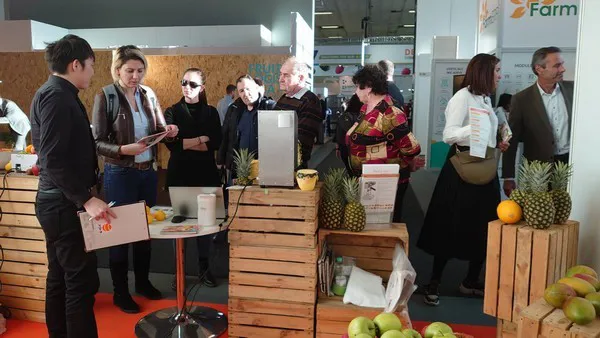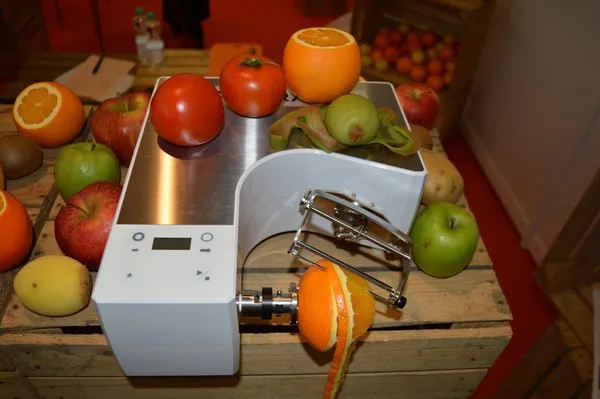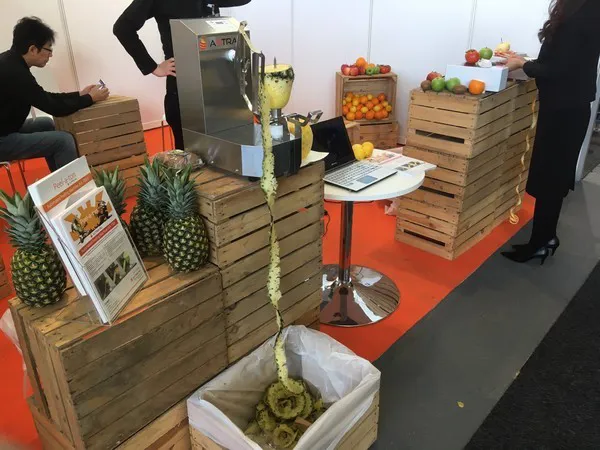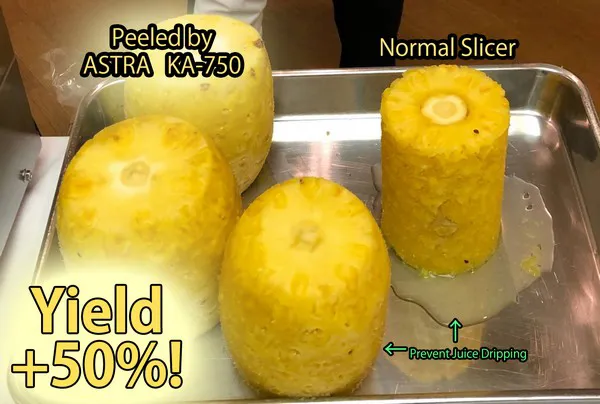During the COVID-19 crisis, consumers have given increased attention to food safety. The use of automatic peeling machines has become more and more popular for companies that are involved in fruit processing. Ryo Takeshita is the sales manager of a Japanese automatic peeler developer ASTRA. He reviewed the company’s performance in the past few months and shared his opinion on the future market trend.

ASTRA’s target groups are mainly fresh fruit processing industries, such as in-flight meals, dry fruit factories, supermarket backyards and hospitals. “Although we experienced very bad sales for in-flight meal channels (80-90% down), due to restrictions on the flights, the sales to other channels remain reasonable, especially the sales to supermarket chains and catering sectors went quite well,” Ryo reviewed. “Businesses have strict protection measurements in the past few months, as a result, supermarkets and catering sectors have started to use machines to replace labor for cutting fruits.”

“Although there were slight fluctuations in our business figures, we still have many hopes for the future. Nowadays, consumers pay more attention to the cleanness of the fruit. Fruit touched fewer times by laborers is safer to eat. Besides, when peeling with a machine, the fruit can stay fresh longer. The machine also prevents color change and juice dripping, which results in less waste,” Ryo explained. “Take KA-750 as an example, this unit can peel over 200 pineapples/hour. Compared to an ordinary cylinder, this machine produces 1/3 less waste. Let’s say, if the company produces 100kg cut pineapple per day, the cost-saving will be $50,000 a year.”
Then Ryo introduced how the machine operates. “Users only need to place the product on the rotation head, select the peeling speed, peeling depth and other factors from the machine, and press the start button. There is no need to worry that the product is in an irregular shape, as the machine has a mechanism to optimize the position of the blade and find the best angle to peel it,” Ryo said. “More than 20 types of products can be handled with one single machine, including fruits such as orange, grapefruit, lemon, kiwi, and vegetables such as tomato, potato and turnip. The peeling depth and speed can be adjusted for every product type.”

When talking about the uniqueness of the peeler, Ryo said, “We have more than 20 years of experience investigating automatic peeling techniques. Now our brand received over 10 international patents regarding the peeling machine, and it is the only machine that can peel with a peeling blade.” As ASTRA Inc. sees the booming opportunity in the overseas markets, the company is now looking for distributors in many areas.
More information:
ASTRA Inc.
Mr Ryo Takeshita
+81 0245412444
[email protected]
https://peel-a-ton.com/










